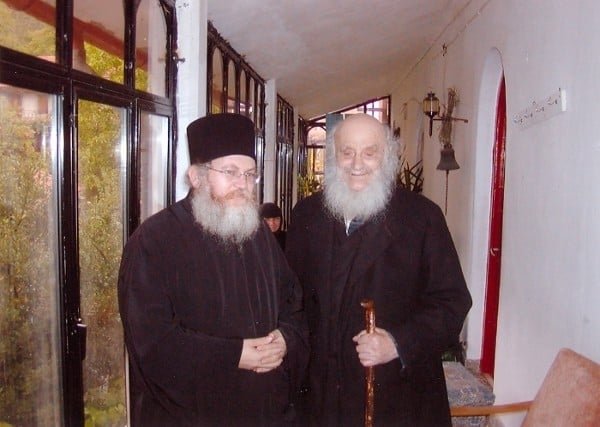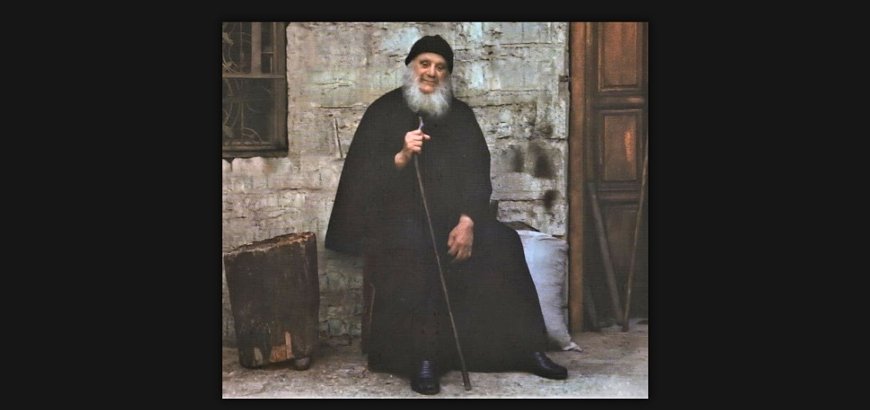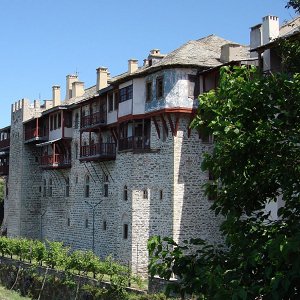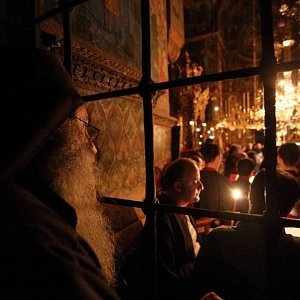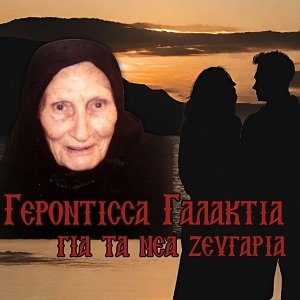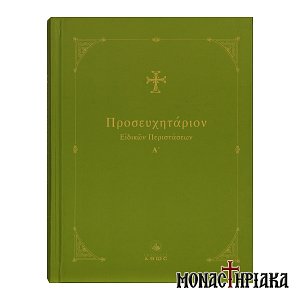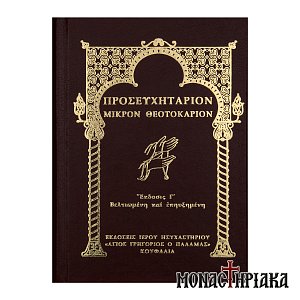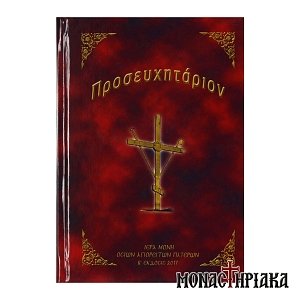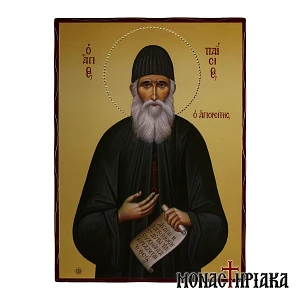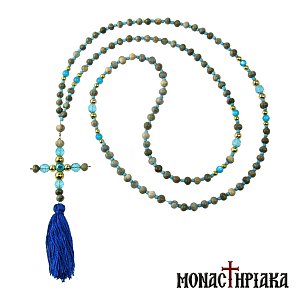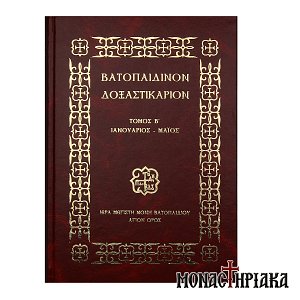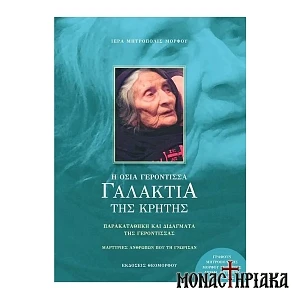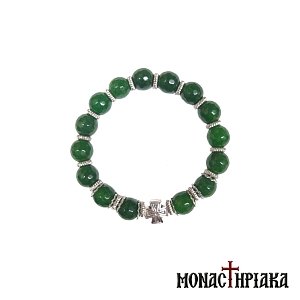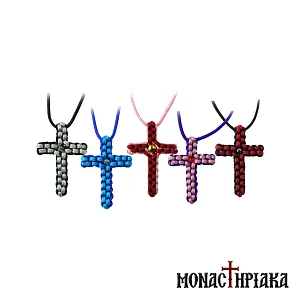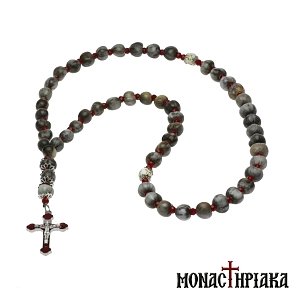The Hieromonk Amvrosios was born in village Lazarata in Lefkada, of pious parents, teacher Panayoti Lazari and Louiza. His first name was Spyridon and he was the fourth child of the family. From young age, Spyridon was characterized by a calm spirit and love for the Church. His father was sent to the war, so his mother was responsible for the raising of the children. Spyridon had attended only the first two grades of the primary school. He quit school because he needed to help in the family chores. Later, when the time came, he served in the military as an “Euzonas” for three years, that means he served the palace.
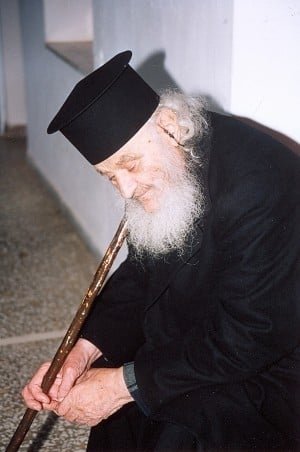
The life of Elder Amvrosios
At one time, he hit his leg on something and went to a hospital, where they inserted a plate into his hip. But it gave him a lot of pain. The then Metropolitan of Switzerland, Damaskinos, had him brought to Switzerland to be examined by the doctors there. He was taken to a hospital, where they discovered that in the first operation he had been given a plate, which was 1 cm. bigger, so he required a new surgery to reduce the size. Before allowing him to leave the hospital, they gave him a general examination and discovered a large stone in his left kidney, so they kept him in for another operation.
The elder recalled: “When I was in the room, a monk appeared. So we went out onto the balcony together, sat down and talked for about fifteen minutes. During this time I told him about the stone and the impending operation. The monk then said: ‘I am Saint Nektarios and I’ve come to see you. I was also a sickly person and passed away in the Aretaieio Hospital. I put up with slander and sickness, and was patient. God gave me great grace because of my patience’. Then he touched me and left. After Saint Nektarios left, I had the urge to urinate and I did so into a small bowl. When I did so, a stone came out with the urine. I picked it out with a paper napkin and put it in the drawer of the bedside cabinet.
The operation was set for the next day. The Swiss doctor came to me and said: ‘Prepare yourself for the operating theatre’, but I told him I did not need to. I opened the drawer and showed him the stone. When he saw it, the doctor said: ‘You Orthodox have living faith; we’ve contaminated ours’. The operation was cancelled and the stone rested on the Swiss doctor’s desk for many years”.
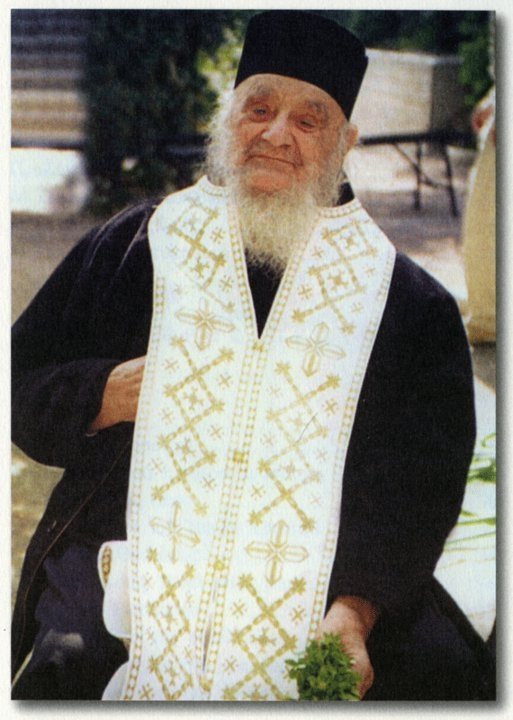
What I saw in the Elder, apart from his saintliness, which was very obvious and is hardly to be found among people today, is that he was a man, who lived in great obscurity there in Dadi. He did not like to be seen, did not enjoy making a show, disliked being the centre of attention. This may be why he did not gather a larger sisterhood around him. I remember once, when we were talking, he said to me: “I’ve stayed here, lived here in insignificance and have occupied myself with prayer, the Liturgy and so on”. He did not want attention.
Even in the village, in Dadi, they didn’t really know him, because he went there only rarely. He stayed in the monastery, performing practical tasks, was the Monastery priest, and spent a long time in prayer, from what he told me. Also, he did give very good advice. He told me how much the Grace of God helped him: “I’m unlettered, yet many well-educated people come here, university professors, and my mind opens and I tell them so many things, though I don’t know how”.
He had great love for Our Most Holy Lady. He asked and we took him the Holy Girdle, which is kept at the Holy Monastery of Vatopaidi. He was greatly pleased to have had the Holy Girdle at Dadi and was overwhelmed, when he received it.
Elder Amvrosios fell asleep in the Lord on December 2nd 2006, fifteen years to the day after Elder Porfyrios. He was a man of God. The Church is the mystical body of Christ.
May we have his blessing and prayers. After his demise, I named one of our new monks Amvrosios in his honour. His life, presence and witness to Christ, the life he led, strengthens our faith. May his blessing be upon us.
Elder Efraim,
Holy and Great Monastery of Vatopaidi
